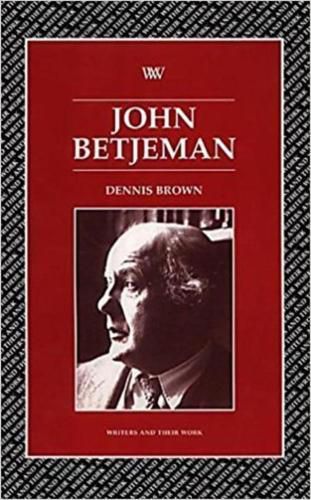Readings Newsletter
Become a Readings Member to make your shopping experience even easier.
Sign in or sign up for free!
You’re not far away from qualifying for FREE standard shipping within Australia
You’ve qualified for FREE standard shipping within Australia
The cart is loading…






Sir John Betjeman remains the most popular English poet of today. He has been termed a ‘national teddy bear’, and some commentary has addressed his work in rather such terms. However, it is evident that most of his key themes - the spirit of place (or ‘place-myth’), mundane lives (‘petit recits’) or historical continuity (the ‘presence of the past’) - have specific relevance to postmodern and, especially, environmental concerns. Dennis Brown’s book assesses Betjeman’s contribution in the light of this, emphasising its ironic self-reflexivity, its rendering of Englishness and a ‘soft’ masculinity, and its ecumenical Christian tolerance. The popularity of Betjeman’s lyrics, and his verse-autobiography Summoned by Bells, is considered as indicative of Britain’s post-imperial self-revaluation. It is shown how the poet’s technique offers an accessible alternative to more complex neo-modernist poetics. Overall, the book stresses Betjeman’s contemporaneity, and his relevance to an era of ‘contingency, i
$9.00 standard shipping within Australia
FREE standard shipping within Australia for orders over $100.00
Express & International shipping calculated at checkout
Sir John Betjeman remains the most popular English poet of today. He has been termed a ‘national teddy bear’, and some commentary has addressed his work in rather such terms. However, it is evident that most of his key themes - the spirit of place (or ‘place-myth’), mundane lives (‘petit recits’) or historical continuity (the ‘presence of the past’) - have specific relevance to postmodern and, especially, environmental concerns. Dennis Brown’s book assesses Betjeman’s contribution in the light of this, emphasising its ironic self-reflexivity, its rendering of Englishness and a ‘soft’ masculinity, and its ecumenical Christian tolerance. The popularity of Betjeman’s lyrics, and his verse-autobiography Summoned by Bells, is considered as indicative of Britain’s post-imperial self-revaluation. It is shown how the poet’s technique offers an accessible alternative to more complex neo-modernist poetics. Overall, the book stresses Betjeman’s contemporaneity, and his relevance to an era of ‘contingency, i